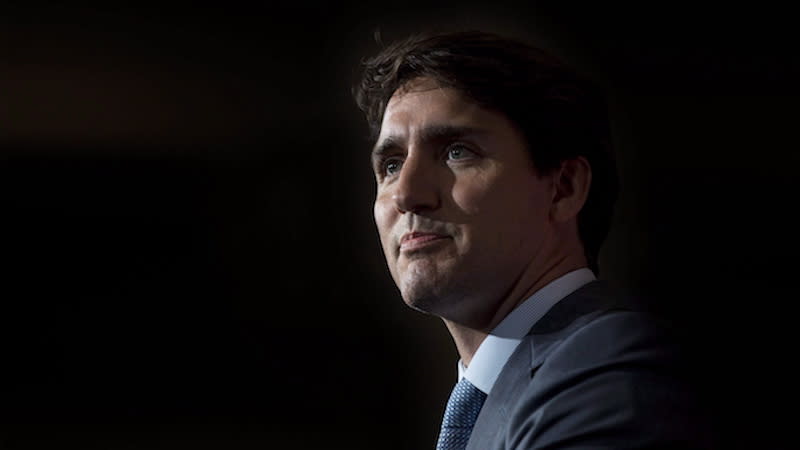Petition calls for action against Justin Trudeau's alleged grope

He calls himself a feminist, a champion of the #MeToo movement and the prime minister of Canada.
But can Justin Trudeau shake off the allegation that has been following him in recent months?
Petition e-1787, which is sponsored by Conservative MP Michelle Rempel, was first launched online by Craig Rowe of Brockville, Ont., on Aug 1. It calls upon Trudeau “to be held to the same standards as he has set for his caucus.”
The motion highlights the fact that Trudeau has said sexual harassment in the workplace is “unacceptable.” He has also taken a hard line against members of his own Liberal caucus who have been accused of sexual misconduct.
The petition comes after a story about Trudeau emerged in national headlines in recent months. In August 2000, a 28-year-old Trudeau was accused of inappropriately touching a female reporter in her 20s while she was working on assignment for the Creston Valley Advance, a local newspaper based in British Columbia, and other publications.
An unsigned editorial in the publication detailed the circumstances of the alleged encounter. It also includes an apology from Trudeau.
Um, what? #cdnpoli #loc #MeToo pic.twitter.com/6P7iiPQRZA
— Warren Kinsella (@kinsellawarren) June 6, 2018
As media outlets tried to verify the story, Trudeau was forced to deal with the backlash. On July 1, the prime minister said he did not recall any “negative interactions” from the event from 18 years ago.
Later that week, Trudeau acknowledged that he “apologized in the moment,” adding that he did not feel he did anything that was “in anyway untoward.” He then said his experience of the incident might be different because of his gender.
“Often a man experiences an interaction as being benign or not inappropriate, and a woman, particularly in a professional context, can experience it differently,” he said on July 5.
PM addresses groping allegations stemming from a B.C. event in 2000:
"Often a man experiences an interaction as being benign or not inappropriate and a woman particularly in a professional context can experience it differently and we have to respect that and reflect on that." pic.twitter.com/ADYHTp9aUw
— CPAC (@CPAC_TV) July 5, 2018
Faced with what she referred to as “mounting media pressure,” the alleged victim eventually issued a public statement on the matter.
“The incident referred to in the editorial did occur, as reported,” Rose Knight wrote on July 6, CBC News reported. “Mr. Trudeau did apologize the next day. I did not pursue the incident at the time and will not be pursuing the incident further.”
Knight, who no longer works in journalism, made it clear she does not want to be involved in this matter any longer.
“The debate, if it continues, will continue without my involvement,” she said.
The petition calls for Trudeau to be held to the same standards as members of his caucus.
In 2014, Trudeau suspended two MPs (Massimo Pacetti and Scott Andrews) from the Liberal caucus after they were accused of sexual misconduct by two NDP MPs, as reported by CBC News. Both men denied the allegations, but at the time, Trudeau said the women deserved the benefit of the doubt.
“The action must be fair, but decisive. It must be sensitive to all affected parties, but, recognizing how difficult it is to do so, it must give the benefit of the doubt to those who come forward,” Trudeau said in 2014, as reported by Global News.
In January 2018, Liberal MP Kent Hehr resigned from cabinet after sexual misconduct allegations were made against him. Hehr had served as the federal minister of sport and disabilities. The prime minister clarified the reasoning behind the move in a statement.
“Harassment of any kind is unacceptable and Canadians have a right to live and work in environments free from harassment,” Trudeau said on Jan. 25. “As a government we take any allegations of misconduct extremely seriously, and we believe that it is important to support women who come forward with allegations and that is exactly what our government will do.”
With thousands of people calling for the prime minister to be held to the same standard for alleged actions, the question becomes: What’s next?



